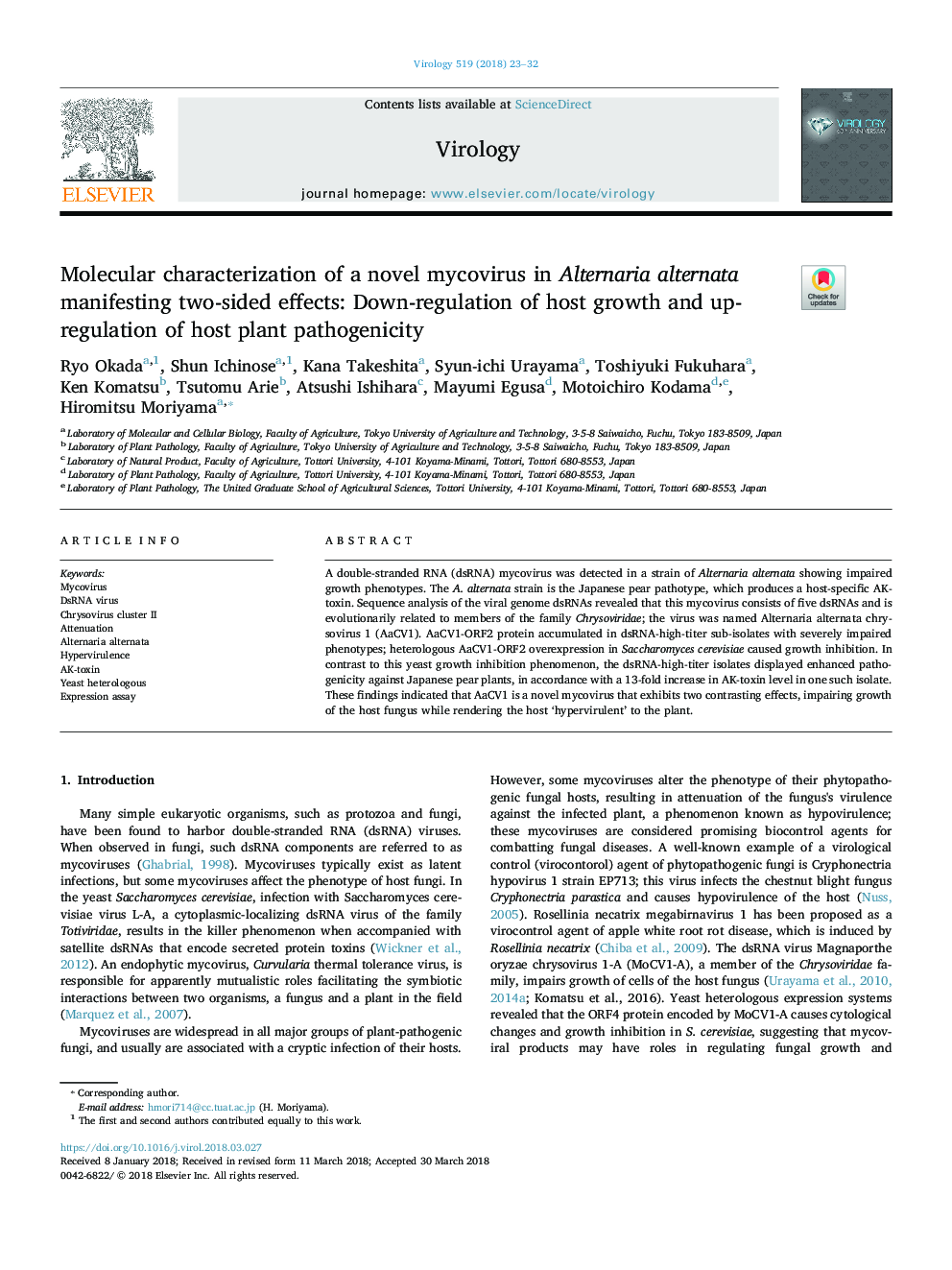| Article ID | Journal | Published Year | Pages | File Type |
|---|---|---|---|---|
| 8751423 | Virology | 2018 | 10 Pages |
Abstract
A double-stranded RNA (dsRNA) mycovirus was detected in a strain of Alternaria alternata showing impaired growth phenotypes. The A. alternata strain is the Japanese pear pathotype, which produces a host-specific AK-toxin. Sequence analysis of the viral genome dsRNAs revealed that this mycovirus consists of five dsRNAs and is evolutionarily related to members of the family Chrysoviridae; the virus was named Alternaria alternata chrysovirus 1 (AaCV1). AaCV1-ORF2 protein accumulated in dsRNA-high-titer sub-isolates with severely impaired phenotypes; heterologous AaCV1-ORF2 overexpression in Saccharomyces cerevisiae caused growth inhibition. In contrast to this yeast growth inhibition phenomenon, the dsRNA-high-titer isolates displayed enhanced pathogenicity against Japanese pear plants, in accordance with a 13-fold increase in AK-toxin level in one such isolate. These findings indicated that AaCV1 is a novel mycovirus that exhibits two contrasting effects, impairing growth of the host fungus while rendering the host 'hypervirulent' to the plant.
Related Topics
Life Sciences
Immunology and Microbiology
Virology
Authors
Ryo Okada, Shun Ichinose, Kana Takeshita, Syun-ichi Urayama, Toshiyuki Fukuhara, Ken Komatsu, Tsutomu Arie, Atsushi Ishihara, Mayumi Egusa, Motoichiro Kodama, Hiromitsu Moriyama,
